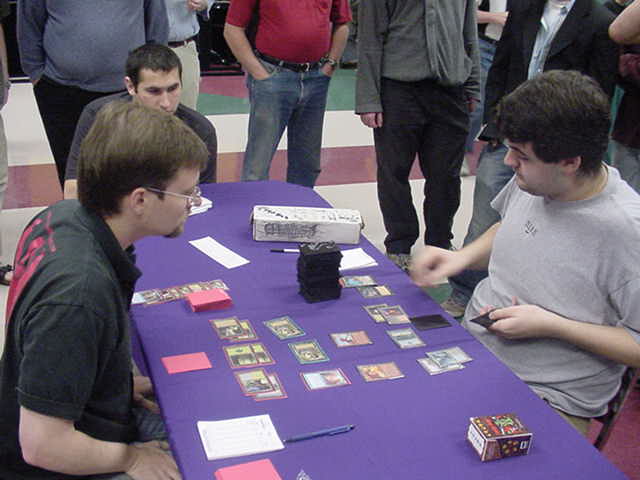Three minutes is your time limit for sideboarding, shuffling, and presentation.
2.3 Pregame Procedures
The following steps must be performed before each game begins:
Players may exchange cards in their decks for cards in their sideboards. Players may only do this after the first or subsequent
game of the match and not for games that are restarted or games that
are drawn before any game actions are taken.
Players shuffle their decks. Steps 1 and 2 may be repeated.
Players present their decks to their opponents for additional shuffling. The sideboard (if any) is also presented at this time.
Players may not use more than three minutes to perform steps 1 through
3.
Additionally, there is a specific definition that is used for "shuffling"...
3.9 Card Shuffling
Decks must be randomized at the start of every game and whenever an
instruction requires it. Randomization is defined as bringing the deck
to a state where no player can have any information regarding the
order or position of cards in any portion of the deck. Pile shuffling
alone is not sufficiently random.
Taking the above two into account, the official rules state that you have 3 minutes to completely randomize your deck. There is no standing consensus for how to achieve this with a massive deck. Combining two methods, such as a pile shuffle followed by a quick riffle shuffle of ~80 card stacks is generally the accepted method. A 250-card pile shuffle should take a bit less than 2 minutes for a dexterous player, so time is really tight when sideboarding.
Another technique I have seen for shuffling massive decks is to do something similar to the following:
- Split the deck into 4 piles (a,b,c,d).
- Shuffle pairs of piles together (a+b, c+d)
- Repeat 1-2, but shuffle the resulting 4 piles in a different combination to not arrive at the same 2 piles again.
- Repeat 3 a few times, throwing an overhand shuffle or two in between.
The real danger becomes when you must shuffle during the game, since shortcuts such as only shuffling the top half are not acceptable for randomization. Presenting an non-randomized deck for your opponent to cut is an easy way to rack up warnings.
There will always be times when a particularly rules-lawyering opponent will attempt to call you on slow play at 181 seconds or for taking too long to shuffle in-game, but such is the danger of having a massive deck. Just play your fastest and you should have little trouble.
